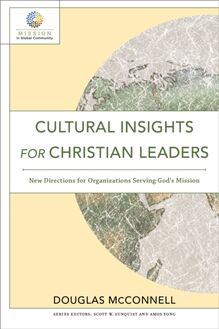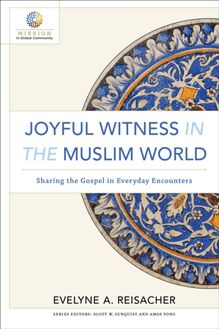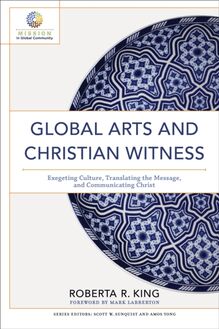-
 Univers
Univers
-
 Ebooks
Ebooks
-
 Livres audio
Livres audio
-
 Presse
Presse
-
 Podcasts
Podcasts
-
 BD
BD
-
 Documents
Documents
-
- Cours
- Révisions
- Ressources pédagogiques
- Sciences de l’éducation
- Manuels scolaires
- Langues
- Travaux de classe
- Annales de BEP
- Etudes supérieures
- Maternelle et primaire
- Fiches de lecture
- Orientation scolaire
- Méthodologie
- Corrigés de devoir
- Annales d’examens et concours
- Annales du bac
- Annales du brevet
- Rapports de stage
La lecture à portée de main
Vous pourrez modifier la taille du texte de cet ouvrage
Découvre YouScribe en t'inscrivant gratuitement
Je m'inscrisCultural Insights for Christian Leaders (Mission in Global Community) , livre ebook
Découvre YouScribe en t'inscrivant gratuitement
Je m'inscrisEn savoir plus
Vous pourrez modifier la taille du texte de cet ouvrage
En savoir plus

Description
Sujets
Informations
| Publié par | Baker Publishing Group |
| Date de parution | 17 juillet 2018 |
| Nombre de lectures | 0 |
| EAN13 | 9781493414543 |
| Langue | English |
| Poids de l'ouvrage | 2 Mo |
Informations légales : prix de location à la page 0,0662€. Cette information est donnée uniquement à titre indicatif conformément à la législation en vigueur.
Extrait
Cover
Series Page
S COTT W. S UNQUIST AND A MOS Y ONG , SERIES EDITORS
The Mission in Global Community series is designed to reach college students and those interested in learning more about responsible mission involvement. Written by faculty and graduates from Fuller Theological Seminary, the series is designed as a global conversation with stories and perspectives from around the world.
Title Page
Copyright Page
© 2018 by Douglas McConnell
Published by Baker Academic
a division of Baker Publishing Group
PO Box 6287, Grand Rapids, MI 49516-6287
www.bakeracademic.com
Ebook edition created 2018
All rights reserved. No part of this publication may be reproduced, stored in a retrieval system, or transmitted in any form or by any means—for example, electronic, photocopy, recording—without the prior written permission of the publisher. The only exception is brief quotations in printed reviews.
Library of Congress Cataloging-in-Publication Data is on file at the Library of Congress, Washington, DC.
ISBN 978-1-4934-1454-3
Unless otherwise indicated, Scripture quotations are from the New Revised Standard Version of the Bible, copyright © 1989, by the Division of Christian Education of the National Council of the Churches of Christ in the United States of America. Used by permission. All rights reserved.
Scripture quotations labeled CEB are from the Common English Bible © 2011 Common English Bible. Used by permission.
Scripture quotations labeled NLT are from the Holy Bible , New Living Translation, copyright © 1996, 2004, 2015 by Tyndale House Foundation. Used by permission of Tyndale House Publishers, Inc., Carol Stream, Illinois 60188. All rights reserved.
The use of italics in Bible quotations is added.
Dedication
To the two most influential missionaries in my life,
Paul G. Hiebert and Janna McConnell.
I am forever grateful for your wisdom and faithfulness to the gospel.
Contents
Cover i
Series Page ii
Title Page iii
Copyright Page iv
Dedication v
Series Preface ix
Acknowledgments xi
Introduction xiii
1. Thinking Missiologically: Implications for Leadership and Organizations 1
2. Culture and Human Nature: The Complex Unity of Human Organizations 25
3. Caring about Members and Others as People: Notions of Self and Others 51
4. Learning Culture Naturally: Imitation and Rituals 79
5. Authority and Culture: Whom Do You Trust? 105
6. Intercultural Realities: Four Worlds of Christian Organizations 129
7. Leading in Context: Cultural Influence and Intercultural Leadership 155
8. Responding Missionally: Learning into Practice 183
Index 195
Back Cover 201
Series Preface
A mission leader in 1965, not too long ago, could not have foreseen what mission looks like today. In 1965 nations in the non-Western world were gaining their independence after centuries of Western colonialism. Mission societies from Europe and North America were trying to adjust to the new global realities where Muslim nations, once dominated by the West, no longer granted “missionary visas.” The largest mission field, China, was closed. Decolonization, it seemed, was bringing a decline to missionary work in Africa and Asia.
On the home front, Western churches were in decline, and the traditional missionary factories—mainline churches in the West—were struggling with their own identities. Membership was then—and remains—in decline, and missionary vocations were following the same pattern. Evangelical and Pentecostal churches began to surpass mainline churches in mission, and then, just when we thought we understood the new missionary patterns, Brazilians began to go to Pakistan and Malaysians began to evangelize Vietnam and Cambodia. Africans (highly educated and strongly Christian) began to move in great numbers to Europe and North America. Countries that had been closed began to see conversions to Christ, without the aid of traditional mission societies. And in the midst of this rapid transformation of missionary work, the alarm rang out that most Christians in the world were now in Asia, Latin America, and Africa rather than in the West.
What does it mean to be involved in mission in this new world where Christianity has been turned upside down in less than a century?
This series is directed at this new global context for mission . Fuller Theological Seminary, particularly through its School of Intercultural Studies (formerly School of World Mission), has been attentive to trends in global mission for over half a century. In fact, much innovation in mission thinking and practice has emanated from Fuller since Donald McGavran moved from Oregon to California—as the first and founding dean of the then School of World Mission—to apply lessons about church growth learned in India to other areas of the world. Since that time many creative mission professors have provided global leadership in mission thinking: Ralph Winter (unreached people groups), Paul Hiebert (anthropology for mission), Charles Kraft (mission and spiritual dynamics), and Dudley Woodberry (Islamics), among others.
This series provides the most recent global scholarship on key themes in mission, written for a general audience of Christians committed to God’s mission. Designed to be student, user, and textbook friendly, each volume contains voices from around the world speaking about the theme, and each chapter concludes with discussion questions so the books can be used for group studies. As the fields of mission are changing, shifting, or shrinking, the discussions connect the church and the world, East and West, North and South, the developed and developing worlds, each crossing cultural, political, social, and religious boundaries in its own way and knitting together people living and serving in various communities, both of faith and of other commitments—this is the contemporary landscape of the mission of God. Enjoy the challenges of each volume and find ways to live into God’s mission.
Scott W. Sunquist
Amos Yong
Acknowledgments
After thirteen years in the senior administration of Fuller Theological Seminary, I decided that in the next season of life I would like to get back to full-time teaching and the work of scholarship. I am deeply indebted to President Mark Labberton and Dean Scott Sunquist for the sabbatical to make that transition. Their support and encouragement was a blessing beyond what I had hoped for or planned.
I spoke to my colleagues Amos Yong and Scott Sunquist, the editors of the Mission in Global Community series, about the nature of the series in light of my particular desire to reengage with missiological reflection by reading in the fields of anthropology, leadership, and organizational studies. I suggested the approach I would take and was invited to submit a proposal. After a period of rest, I began several months of reading, studying, and writing a proposal. In the six months that followed the acceptance of the proposal, my reading and writing were increasingly productive, which was a pleasant surprise. Amos and Scott were great encouragers and guides. Thanks to both of you!
I am grateful for Paul G. Hiebert’s influence as my teacher, mentor for doctoral studies, fellow missiologist, and friend. His influence on my thought and practice is a treasured resource. My colleagues at Fuller Seminary continue to draw from the deep well of Paul Hiebert’s knowledge, and we give thanks for the memory of his life among us.
Janna, my wife of forty-seven years, was a wonderful encourager, editor, critic, and cheerleader during the months of research and writing. She has been my missionary inspiration since November 1969, when, through her witness to the love and redemption that come through Jesus Christ, I found life in him. Part of dedicating my life to Christ was accepting Janna’s call to missionary service. In these months of sabbatical we often recounted the joys and challenges of the journey, giving thanks for the faithfulness of God. Thank you for your faithful witness and constant support!
I discovered the wonderful resources available in the Orlando area, especially the libraries of the University of Central Florida and Eastern Florida State College at Cocoa, where the lake next to the library has a sign forbidding the feeding of alligators—a caution quite different from those in our David Allan Hubbard Library at Fuller Pasadena. I was able to use the libraries of Reformed Theological Seminary and Asbury Theological Seminary, finding both places a refuge for study and resources.
A very special thanks goes to my colleagues Marcos Orison Almeida, Judy Fitzmaurice, Katharine Thompson, Melody Wachsmuth, Siew Pik Lim, Joanna Sears Lima, John Azumah, and Nam Chen Chan who contributed greatly to this book by providing significant insights through their case studies. Their contributions highlight the dynamic interaction of culture and organizational leadership from the perspective of missiology. We share a common commitment to the mission of God and a common bond as brothers and sisters in Christ.
I want to especially thank Jim Kinney, Brandy Scritchfield, Eric Salo, and the editorial team from Baker for their helpful critique and suggestions; they were gracious in sharing their significant insights with me. My experience with them and everyone at Baker Publishing Group has been encouraging.
Introduction
Leading a Christian organization is a sacred duty. If you accept the position, you must shoulder the responsibility, and that includes being a learner. Learning will never cease to be important in that role. One seasoned veteran charged that as leaders we should “make new mistakes!” I like that approach for a couple of reasons. First, it recognizes our humanity and, therefore, the inevitability of mistakes. The world is moving quickly, and we are trying our best, but that doesn’t mean we lead perfectly. Second, we find hope in learning from our mistakes. Although we will make mistakes, we can and must set a course to le
-
 Univers
Univers
-
 Ebooks
Ebooks
-
 Livres audio
Livres audio
-
 Presse
Presse
-
 Podcasts
Podcasts
-
 BD
BD
-
 Documents
Documents
-
Jeunesse
-
Littérature
-
Ressources professionnelles
-
Santé et bien-être
-
Savoirs
-
Education
-
Loisirs et hobbies
-
Art, musique et cinéma
-
Actualité et débat de société
-
Jeunesse
-
Littérature
-
Ressources professionnelles
-
Santé et bien-être
-
Savoirs
-
Education
-
Loisirs et hobbies
-
Art, musique et cinéma
-
Actualité et débat de société
-
Actualités
-
Lifestyle
-
Presse jeunesse
-
Presse professionnelle
-
Pratique
-
Presse sportive
-
Presse internationale
-
Culture & Médias
-
Action et Aventures
-
Science-fiction et Fantasy
-
Société
-
Jeunesse
-
Littérature
-
Ressources professionnelles
-
Santé et bien-être
-
Savoirs
-
Education
-
Loisirs et hobbies
-
Art, musique et cinéma
-
Actualité et débat de société
- Cours
- Révisions
- Ressources pédagogiques
- Sciences de l’éducation
- Manuels scolaires
- Langues
- Travaux de classe
- Annales de BEP
- Etudes supérieures
- Maternelle et primaire
- Fiches de lecture
- Orientation scolaire
- Méthodologie
- Corrigés de devoir
- Annales d’examens et concours
- Annales du bac
- Annales du brevet
- Rapports de stage









